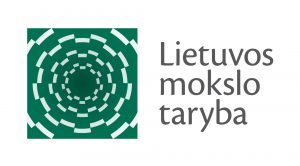Mapping and forecasting ecosystem services in urbanised areas, No. S-MIP-23-76

Project No. S-MIP-23-76
Project title: „Mapping and forecasting ecosystem services in urbanised areas”
Project duration: from 2023-04-01 to 2026-03-31
Project leader: dr. Paulo Alexandre da Silva Pereira
Project goal: Half of the world’s population lives in cities, and this number is expected to grow soon. Urban sprawl reduces the capacity of ecosystems to provide services. Ecosystem services (ES) are essential for human well-being and it is essential to understand how land use and climate change will affect their provision in cities. Urban development is one of the major drivers of ecosystem degradation. This is particularly important in Lithuania, where large cities are among the fastest growing in Europe. There has been little research on land use and climate change impacts on EP in Europe and Lithuania. Understanding how land use and climate change will affect urban areas in the future is crucial to ensure the viability of cities. The Mapping and Forecasting of Ecosystem Services in Urban Areas (MAFESUR) project aims to investigate the impact of land use and climate change on the provision of ES in three cities – Vilnius, Kaunas and Klaipėda. 3 future land use and 3 climate scenarios until 2050 will be assessed. For each study area, 2 regulatory and 2 provisioning EP resources will be mapped. In total, 9 scenarios and 36 EP layers will be developed for each city.
Planned activities:
- Stakeholder engagement, literature review and data collection.
- Mapping and forecasting future land use changes under different climate scenarios.
- EP mapping and forecasting.
MAFESUR results will be disseminated through various channels to reach all sectors of society and to help the authorities of Vilnius, Kaunas and Klaipėda to obtain science-based information for better planning and living in their cities. MAFESUR will provide reliable information that will help to make the study areas more resilient. The project will help Lithuania to implement national strategies (e.g. Lithuania’s Vision 2050) and contribute to regional (e.g. EU Biodiversity Strategy 2030) and global (e.g. UN Sustainable Development Goals) strategies.
The project is funded from the national budget and is implemented under the Council-supported action line “Research Group Projects”.